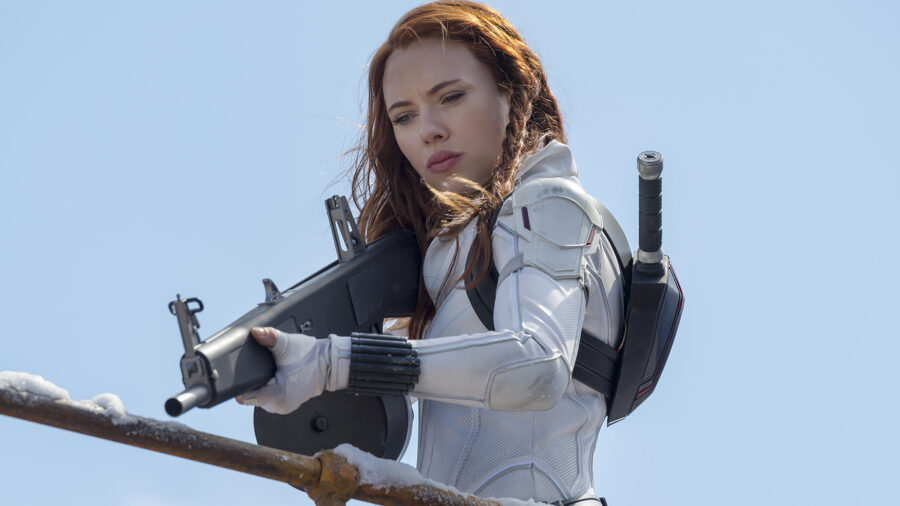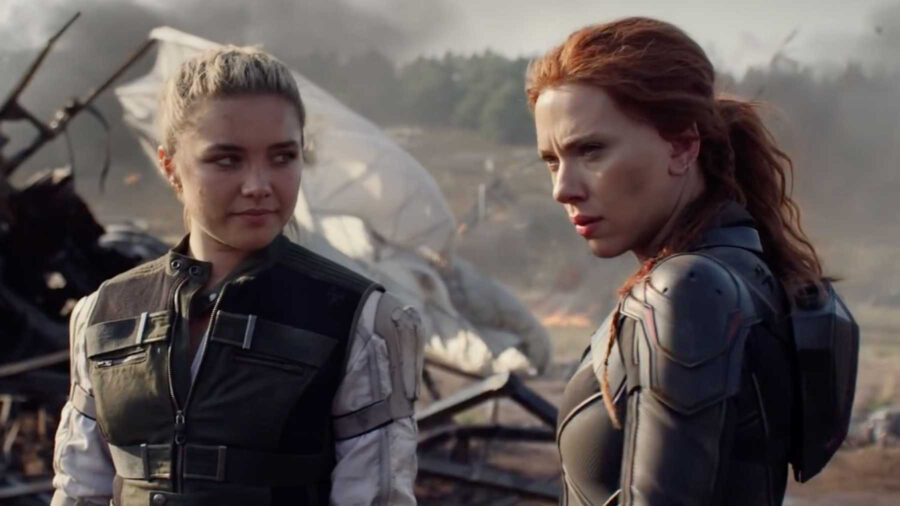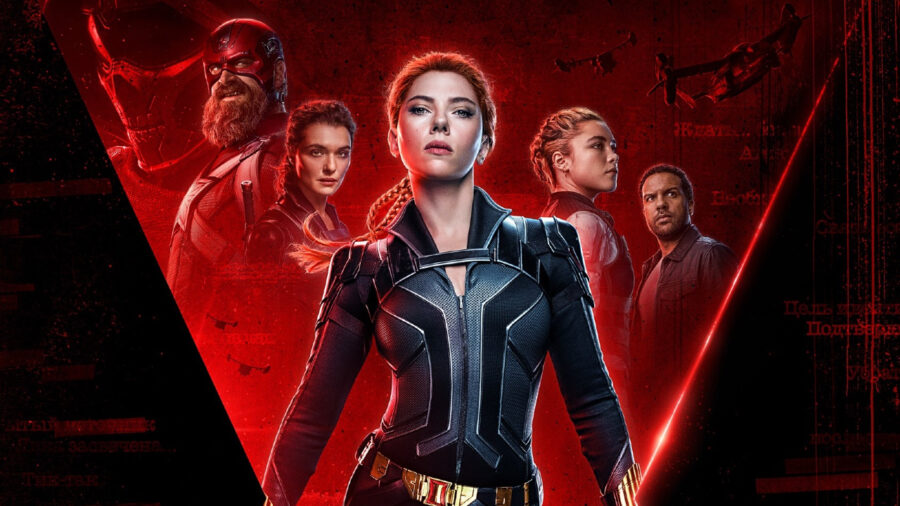Black Widow Review: Scarlett Johansson’s Solo Film Is Too Little, Too Late
Black Widow is a poor and tardy excuse for a Scarlett Johansson solo Marvel film.

Black Widow is a piteous movie. It was stuck in development far past its lead character’s seeming relevance to the larger Marvel Cinematic Universe and was held back due to unquestionable sexism. The allure of its star faded over time with a number of uncomfortable controversies. And then, even when it was finally in the can, it was pulled from release due to the pandemic. There is no way to look at the movie and not feel kind of sorry for it. If there is any movie that one would want to be a standout in the grand Marvel experiment, it’s Black Widow. Unfortunately, the final product is very nearly a disappointment across the board.
The story of Black Widow centers around the origins of the titular character and aims to rectify her past by allowing her to bring down the tyrannical organization that turned her into a killer. It inserts a family unit into her past that includes sister Yelena (Florence Pugh), mother Melina Rachel Weisz), and father Alexei (David Harbour). Together, they make plans to take down the Red Room and its controlling power, the villainous Dreykov (Ray Winstone).
Within that framework is the opportunity for a ton of interesting thematic exploration, and Black Widow even outright states some great philosophical conflict for it to ruminate upon. There is a moment where Yelena calls out the hypocrisy of Natasha (Scarlett Johansson) being a hero and icon to little girls when she is a trained killer who has remorselessly murdered innocent people under the orders of the Red Room. That character exploration is enough to sustain an entire movie, but like a lot of Marvel stories, it is only the illusion of thematic depth. Other such dramatic platitudes are tossed around during the movie – how powerful men take advantage of young women and girls, that old chestnut of “family” – but the movie does not actually put in any substantial work to earn any of these discussions. It’s a plotty succession of hollow scenes that never delivers on the promise it puts forth.

That might be more palatable if the majority of the cast was at all engaging. The clear standouts are Florence Pugh as the more emotional and humorous Yelena and David Harbour as the gooey, oafish heart of the movie. Alexei a.k.a. Red Guardian is a scene-stealer, and while that is undeniably enjoyable, it is also a problem for a movie like Black Widow. The film is more of an ensemble than a real showcase for its main hero, and it often feels like the film finds Natasha the least interesting of its lead characters. It doesn’t help that Scarlett Johansson feels bizarrely disengaged from the movie. Perhaps that has to do with the realization that this iteration of the character has simply worked better in a supporting role. The general character of Black Widow is undeniably compelling and capable of fronting her own stories, but the Marvel Cinematic Universe version of Natasha may have just been revealed to be secretly kind of boring.
Adding to this mediocre medley is a big tonal problem with Black Widow and one that is unavoidable with these larger Marvel Cinematic Universe endeavors. This wants to be a much darker story but is also shackled by the four-quadrant demands of this franchise’s blockbuster efforts. The movie’s opening credits sequence (remember when movies had opening credits sequences?) shows little girls being locked into cargo containers while a grating, melancholy cover of Nirvana’s “Smells Like Teen Spirit” plays on the soundtrack. The same movie also wants to make cracks about Natasha’s fight poses in an attempt at winky meta humor. It’s not that tonal differences in movies can’t work but Black Widow is an example where there isn’t an overall grasp on how to manage tonal shifts and balances.
Another ding against the movie is the action. Director Cate Shortland isn’t bad at staging and shooting action, but like many modern action blockbusters, the impact is decreased due to a stylistic belief that the edit can better simulate the force behind the action. So many moments lose their punch due to a poor conversation between the staging, the cinematography, and the edit. That’s a big bummer when the movie sports an excellent adversary in Taskmaster, a soldier with the ability to mimic any fighting style they see in action. And surprise, they have watched all the Avengers and have retained their move sets. This has one or two moments of inspired action, but for the most part, it is a waste of a really good sub-antagonist.

Black Widow just isn’t able to deliver the amount of support it deserves to its lead, and the story we’ve gotten feels like it’s incredibly out of step with where the Marvel experiment is right now. Part of that isn’t its fault, but that doesn’t excuse its limp thematics or by-the-numbers story. It’s not the worst Marvel Cinematic Universe movie (this is), but it is easily one of the blandest. Natasha deserved better.











